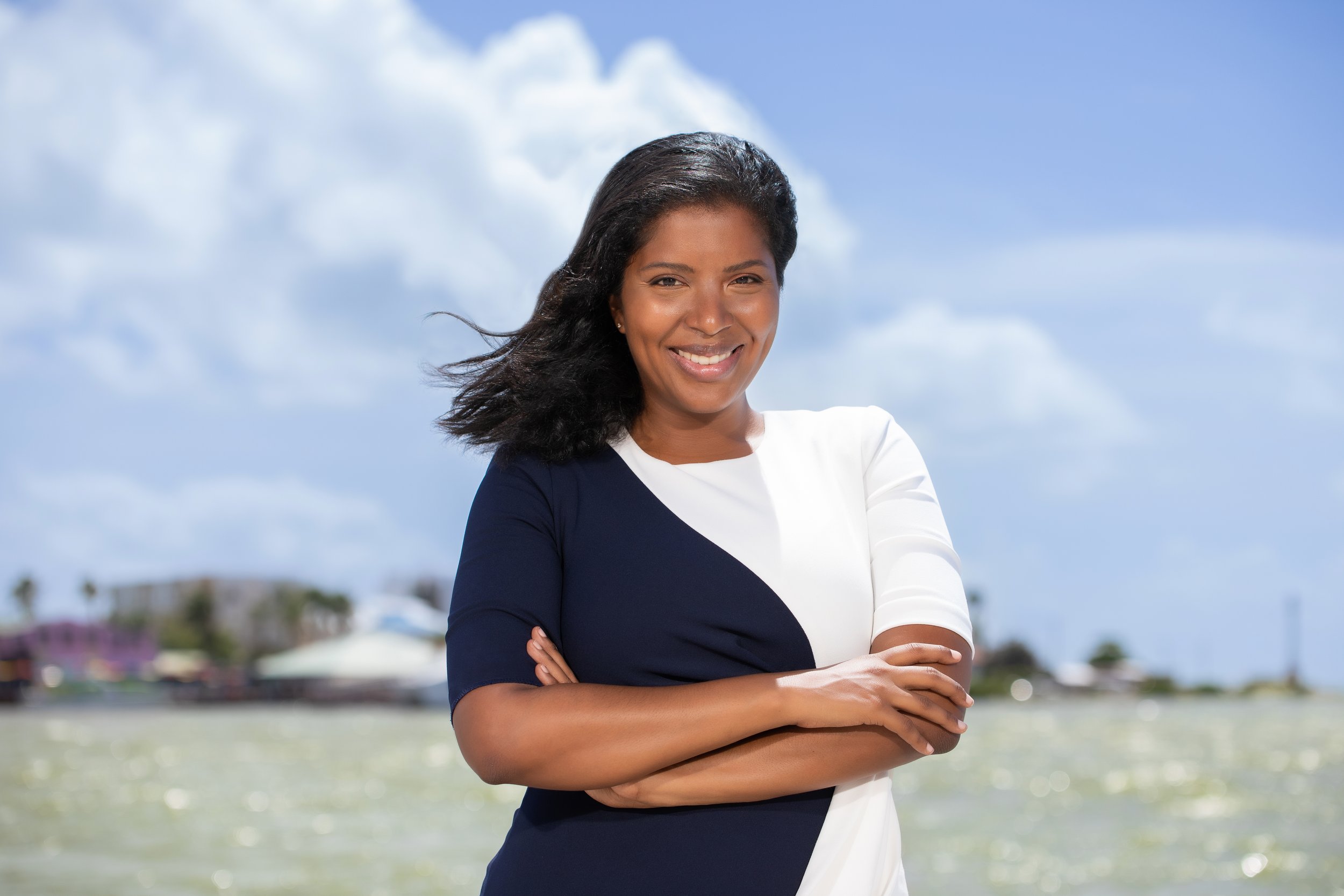AFPC-USA Names Cherisse Halsall a 2023 Scholarship Awardee

Cherisse Halsall, formerly with Channel 7 in Belize, is an up-and-coming journalist known for international headlines like the Jasmine Hartin case and indigenous resistance to Prince William's recent visit to Belize.
In her four-year stint in Belize, Cherisse's deep dives into pressing topics have earned her significant accolades in journalism. She's now pursuing a master's in journalism, with a special project on the SmartLink app's alignment with U.S. Supreme Court immigration advice speech rulings. Soon, she'll be joining KOMU 8 in Missouri as an MMJ.
Cherisse aims for a spot at a leading news network, never compromising on her passion and tenacity. Her future in journalism is poised for impactful stories and profound narratives.
The following interview has been condensed and edited for clarity.
What was the primary reason you chose to pursue your master's studies in the United States as a foreign journalist?
I chose the University of Missouri in the United States because of its hands on philosophy of learning in the newsroom; they famously call it the "Missouri method." At Mizzou I have the opportunity that keep working at Mid-Missouri's KOMU 8 while researching and preparing to film the documentary that will become my Master's project. I also chose to come to the U.S. to pursue an internship with CBS News. I had the opportunity while working in Belize to collaborate with CBS's 48 Hours on a once in a lifetime story that raised questions about public safety, the rule of law, and potential implications for foreign nationals in Belize. Now, I hope that the company I helped break a world exclusive will allow me to elevate my journalism and gain some practical experience spending the summer working in their storied institution.
You were recently awarded a scholarship from the Association of Foreign Press Correspondents in the United States (AFPC-USA). How did you feel about this recognition?
I was nothing short of ecstatic to receive the news that I'd been awarded a scholarship from the Association of Foreign Press Correspondents in the United States. The Association that strives to educate, provide resources, and protect press freedoms has remained a leader in keeping the public informed about the sacred role of the press. Yours is an institution that has granted a Professional Excellence award to no less than the likes of Christiane Amanpour. So, just to be considered for an accolade by your institution was an honor, but to actually receive the scholarship is one of the greatest accomplishments of my young career.
Why do you think the work of AFPC-USA is important and what are your thoughts on its impact on the journalism field at large?
The AFPC-USA plays a vital role in safeguarding journalism globally. It does this not only by promoting informed journalists, and advocating for press freedoms but also by acknowledging the vital role of foreign correspondents play. You understand that a global citizen must be widely informed and appreciate the fact that accurate reporting requires boots on the ground in every situation. All journalism is local journalism, but by providing opportunities for every journalist who wants it to enhance their skills, the AFPC-USA is ensuring that efficient impactful stories can come from every corner of the world no matter how small or obscure it may seem.
What made you decide to become a journalist? How do you hope to make an impact in the journalism field of your country of origin?
If I'm honest I took a job as a reporter so that I could get comfortable in front of a camera. I had intended to start a YouTube channel (still haven't). It sounds silly now but journalism found me working. Just three months into that job as a reporter I was sent out to cover a mass casualty event where a five-car pileup had caused the injuries and deaths of Belizean as well as American tourists. For me it was an instant awakening into the vital role journalists play, not just in accurately reporting the event from the center of things but often offering a small comfort to someone in allowing them to speak their truth on what could be the worst day of their life.
What is the state of press freedom in your country of origin and how do you hope that your work will encourage more people to access independent and credible information?
The press in Belize is vilified; its right to exist is questioned, its right to challenge, to provoke, to expose, is not respected by the state. In small countries like ours the state or the public sector is the most powerful actor in society and in the economy, and they don't value the press as one of the foundational pillars of a democracy. Belizeans don't live in an information society; we live in a disinformation society. You can apply for a document under the Freedom of Information act, but it won't always be granted. We live in a society where the bureaucracy is set up to insulate corrupt actors. Everything is masked in confusion because they don't want you to know, and that is because corruption and clientelism is ever present for both political parties. In Belize it is, sadly, our very way of life.
What do you think is the greatest threat to journalism today?
I believe that the greatest threat to journalism today is loss of public trust: The polarization of media and accusations of bias, often amplified by political figures, have eroded public trust in journalism. When audiences don't trust the sources of their information, it undermines the role of journalism in democracy. Journalists can't work for the people if the people don't trust us to act on their behalf. It's simple, no sources, no subjects, no story.
Alan Herrera is the Editorial Supervisor for the Association of Foreign Press Correspondents (AFPC-USA), where he oversees the organization’s media platform, foreignpress.org. He previously served as AFPC-USA’s General Secretary from 2019 to 2021 and as its Treasurer until early 2022.
Alan is an editor and reporter who has worked on interviews with such individuals as former White House Communications Director Anthony Scaramucci; Maria Fernanda Espinosa, the former President of the United Nations General Assembly; and Mariangela Zappia, the former Permanent Representative to Italy for the U.N. and current Italian Ambassador to the United States.
Alan has spent his career managing teams as well as commissioning, writing, and editing pieces on subjects like sustainable trade, financial markets, climate change, artificial intelligence, threats to the global information environment, and domestic and international politics. Alan began his career writing film criticism for fun and later worked as the Editor on the content team for Star Trek actor and activist George Takei, where he oversaw the writing team and championed progressive policy initatives, with a particular focus on LGBTQ+ rights advocacy.


